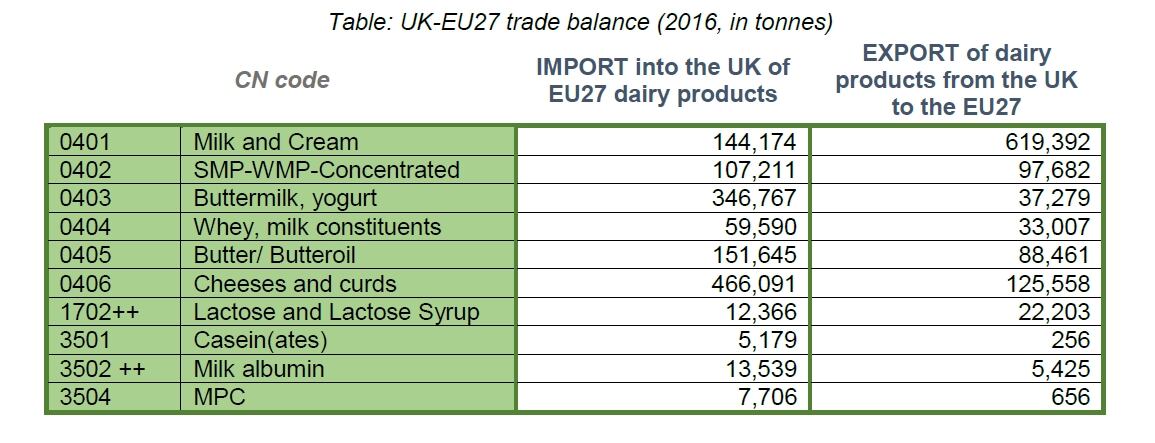The framework also includes potential solutions to some of the issues that may arise from the various Brexit scenarios.
There are 700,000 dairy farms across the European Union, 12,000 milk and processing sites, and more than 300,000 people working in the sector.
The EDA said disruption to supply chains as a result of Brexit may force up prices and limit choice.
Russian ban
The European dairy industry is currently integrated across borders. Therefore, limitations on free and frictionless trade will have a negative effect, the EDA said. Tariff barriers are only one of the organization’s concerns; other issues such as maintaining access to skilled labor, minimizing delays at customs and regulatory divergence may also disrupt the sector.
The EDA noted the 2014 Russian ban on imports of dairy products triggered a crisis in the European dairy sector as new markets had to be found quickly. The results of sudden changes in milk price and intervention by the EU Commission adversely affect European and global dairy markets to this day, the EDA argued.
However, it noted, Brexit has the potential to create a completely new scale of milk crisis. Volumes of EU-27 butter sold in the UK are three times higher than EU-28 butter exports to Russia. For cheese, EU-27 exports to the UK are twice the volumes that were sold to Russia.
No-deal Brexit
The EDA and Dairy UK said it is a priority that the relationship between the EU and the UK remains as close as possible to the status quo after Brexit and throughout a transition period.

The EDA said the no-deal Brexit scenario would involve the implementation of WTO tariffs at the border between the EU27 and the UK.
If UK-EU27 trade continues at the level of 2016, it is estimated that UK importers would need to pay more than €1.7bn ($2bn) in duties to import EU dairy products. Likewise, the EU27 importers would need to pay more than €660m ($770m) in tariffs to continue importing from the UK.
If UK consumers want to continue to buy EU27 products they would need to pay approximatively €18 ($21) more per year per person.
With this increase in price, the EDA and Dairy UK argues, consumers would start to buy different products of different origin that would replace EU27/UK products in the supermarkets.
Best option
The UK should preferably remain part of, or at least as close as possible to, the EU Single Market and the Customs Union, the organizations stressed. This would secure the free movement of milk and dairy products between the EU and UK with no tariffs or quotas from either side for milk and dairy products, and limit non-tariff barriers to trade (SPS/TBT) as much as possible.
The EU and UK should have no (significant) divergence in the regulatory sphere when it comes to policies affecting dairy and dairy products and a level playing field should be sustained.
The organizations said they are urging decision-makers on both sides of the English Channel to do all they can to avoid damaging the dairy industry and European consumers.
